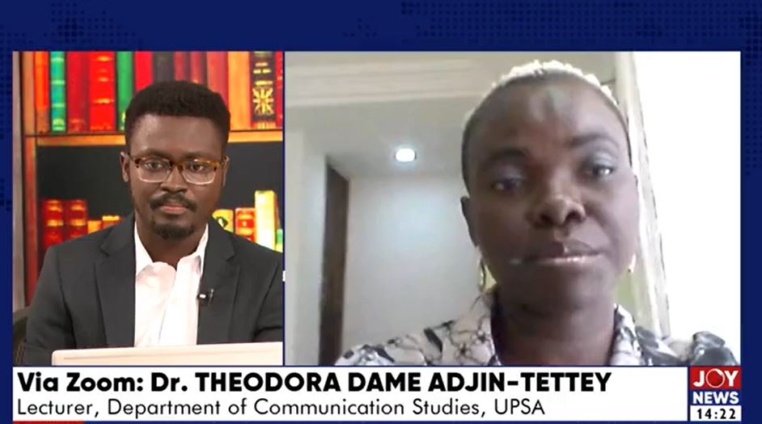A communications lecturer at the University of Ghana (UG) has observed that there are still major impediments to the implementation of the Right to Information (RTI) Law.
Dr Theodora Dame Adjin-Tettey said many public office holders are mostly reluctant in giving out information, even under the RTI Law, because they are glued to the old ways of performing their duties.
She noted that some are still not abreast of their duties under the law so they always frustrate persons who apply for information using the RTI law.
Speaking to Joseph Ackah-Blay on The Law, Dr Adjin-Tettey revealed that many civil society actors have that impression which seems to deter them from making any move in getting information.
This, she believes, destroys the rationale and objectives of the law.
“I spoke to a number of civil society actors; they get the impression that public servants are stuck to their old ways of doing things. You go into an office, you swear an oath of secrecy and confidentiality so those things are really a major impediment to accessing information,” she said on Sunday, September 25.
The opportunity to access information by the public is provided for in Ghana under Article 21(1)(f) of the 1992 Constitution which “guarantees the right to information by all persons, subject to such qualifications and laws as are necessary for a democratic society.”

Despite how succinct the provision is set out to operate, Dr Adjin-Tettey highlighted that other challenges like the unavailability of information officers have restricted access to information in some public institutions.
The RTI law stipulates that where there is no information officer, the head of an institution should be treated as the information officer.
The academic wants some clear-cut criteria to be outlined for public institutions to guide them in the selection of information officers and other persons who aid in access to information.
“It’s one of the things that we found that because there are no information officers, a lot of the time, the process becomes slow.
"Some of the challenges, particularly when it comes to the sub-national agencies like the district assemblies; it’s quite difficult to get information from there because a lot of the time they feel that they need clearance from the headquarters or the main ministry.
“…once the go-ahead is given, then they can give that information but we should also note that if the response from the Ministry says ‘don’t’, then they are likely going to comply with the ‘don’t’.”
Latest Stories
-
Court remands unemployed man over theft of ECG property
3 mins -
Election security rests solely with the police – Central Regional Police Command
5 mins -
NCCE engages political youth activists at Kumbungu on tolerance
6 mins -
‘In Mahama’s era students lacked chalk, but are now receiving tablets’ – Bawumia
15 mins -
Project commissioning not a ploy to attract votes – Oppong Nkrumah
17 mins -
CBG records GH¢1bn revenue in Q3
19 mins -
Mahama vows to create an agro-processing zone in Afram Plains
33 mins -
Political parties should plan for losses, not just wins – IGP advises
35 mins -
524 Diasporan Africans granted Ghanaian citizenship in ceremony
37 mins -
Mahama urges Afram Plains North residents to avoid ‘skirt and blouse’ voting
38 mins -
Asantehene receives more 19th century gold ornament and regalia
46 mins -
Hohoe Ghana Blind Union organises training for members ahead of Election 2024
52 mins -
Alan Kyerematen reveals his future plans for Ghanaian Health professionals
53 mins -
AAIN empowers women and small enterprises in Upper East Region through SHINE project
54 mins -
Akufo-Addo leads nationwide commissioning of 80 educational projects
1 hour

